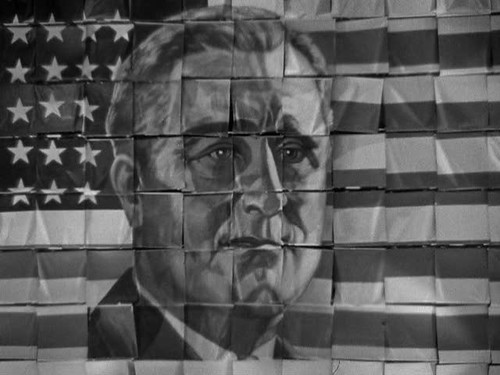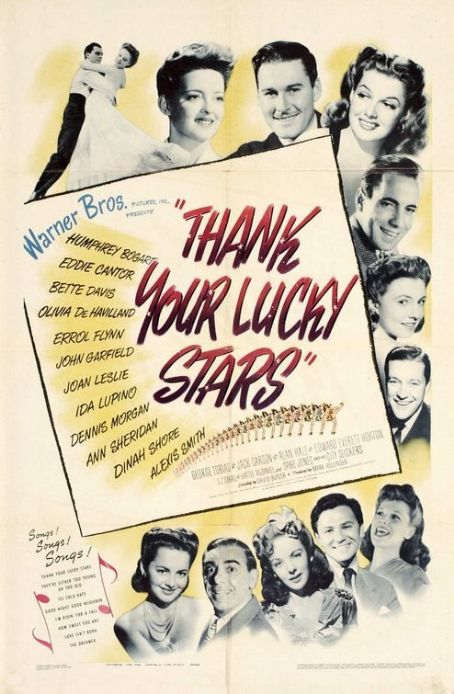Some people have seen ‘Gold Diggers of 1933’ (1933),
but here is a review of a little known Warren William/ Joan Blondell film, ‘Smarty’
(1934). It is a story of marriage and divorce and how to keep the spark between
husband and wife. It was one of the last films to get through before film
censorship and, I have to admit, its themes are definitely Precode.

PLOTLINE
Vicki and Tony Wallace (Joan Blondell and Warren William)
appear to be a happily married couple. Tony is deeply in love with his wife and
her with him. But there is one problem or stumbling block, Vicki is a perpetual
joker. She loves teasing her husband, playing tricks and humiliating him;
however, up until now, he has allowed her to behave as she likes with the
understanding that it is better to keep the situation the same then anger her.
The couple have a small party for Vicki’s birthday with their friends: the
annoying George (Frank McHugh), the worldly and multi-divorcee Anita (Claire
Dodd) and the stuffy, moralistic, superior Vernon (Edward Everett Horton). They
are playing cards when, as usual, Vicki begins teasing Tony in front of Anita.
Vicki: Don’t grunt
darling, it’s not ethical
Tony: I never
made a sound
Vicki: Didn’t he
make a grunting noise
Anita: Maybe it
was something he ate
Vicki: Yes,
darling would you like some bicarbonate of soda
Tony: Vicki this
flow of humour I just a little ore then I can bare
Vicki,
mockingly: Oh, don’t be irritable precious
Vicki continues until, infuriated, Tony over-turns
the table and hits her.
Shocked she pulls back from him. Tony is guilty and contrite,
but calm, level-headed Vicki has one decree – she wants a divorce and turns to
lawyer Vernon for help. He convinces her that it would be a simple and quick
procedure to get rid of Tony, that she could claim physical cruelty. Later,
Vernon goes to talk to a depressed Tony to tell him of the situation. After a
little prodding, Vernon admits he is in love with Vicki as well and Tony
punches him. Anita and Vicki break the fight up and Vicki, steadfast, gives
Tony some advice:
“You know, exit smiling.”
As quick as the fight started, Vicki is divorced and
remarried to Vernon. Meanwhile, broken-hearted, Tony is out partying every
night, cavorting with different women and drinking too much. Vicki, who can’t
seem to get Tony out of her mind, asks him over for dinner with her, Vernon and
the group. He accepts and she begins scheming for a way to get Tony back in her
life. Without the approval of stuffy Vernon, Vicki buys a daring backless dress
for the occasion. As soon as Tony arrives, accompanied by one of his lady ‘friends’
Mrs Bonnie Durham (Joan Wheeler), she asks him up to her room, alone. He is instantly
smitten with her in the racy dress and Vicki makes it worse by asking him to
hook the back of her dress together. After several attempts, Tony caves and
admits he is still in love with her.
At that moment, Vernon comes home and finds
Tony in Vicki’s room. After an argument Tony leaves and, characteristically
Vicki begins teasing Vernon.
“Why don’t you act like a man and hit me or as Tony
says with a grapefruit. Have we any grapefruit?”
Enraged, Vernon hits her. Upset, but not overly
surprised, Vicki locks herself in her room. Tony, meanwhile, has left taking
Bonnie with him intent on getting drunk first at a nightclub and then back to
his house. Before they can get there, Vicki has climbed out her window and has
gone up to his apartment and hides in Tony’s bedroom as he and Bonnie arrive.
With the intention of finding the now missing Vicki, Vernon and Anita arrive at
Tony’s but he is, as yet, unaware of Vicki’s scandalous presence in his
bedroom. They are about to leave, satisfied that only Bonnie and Tony are in
the apartment, when Vicki calls out from the bedroom. They find her cross –legged on his bed, draped
in his dressing gown provocatively smoking a cigarette.
Will she stay or will she go?
LOWDOWN
Understandably, like lots of Precodes, the plot has
not many twists or surprises; however, it is invariably a character driven
movie and the actors don’t disappoint. I love Warren William and Joan Blondell
together they play perfectly off each other and have blatant sexual chemistry.
Also, the supporting actors Claire Dodd as the all-knowing, cynical society divorcee,
Edward Everett Horton as the moralistic, stuffy lawyer with too pale makeup and
the odd, wise-cracking Frank McHugh as George are all great. Although, it is
odd to see Joan in a negative role, she isn’t a villain, but appears to be
motivated by some unknown reason to torment the men in her life and provoke
them to react badly.
To say the least, ‘Smarty’ is a controversial film
and if it was shown readily today would create uproar due to its Precode
themes. Indeed, read some of the reviews from IMBD, “Well made but disturbing and hard to like”, “Slight tale of masochistic woman in control”,
“Smarty - unguarded look at sadistic male fantasies” and “If this film
were remade today the title would be changed to the more appropriate
"Slutty."” Not very positive. Most of these comments come from the
main theme of the movie and the controversial ending. It is all up to
interpretation, but the character of Vicki appears to be outspoken and out of
control and the solution – as the film comments – is for her husband to hit
her. She seems, in ‘Red-headed Women’ like fashion, to want it, with the lines,
“That’s just it, if he really loved me he would have hit me long ago” seemingly
showing it. Therefore, as I can gather the moral of the film is to keep a
marriage stable and passionate a man must take control of his woman, by force
if he has to, and that unions where the women is in control (for example the
short coupling of Vicki with Vernon) do not last. It is this feature that turns
the movie from entertaining and great to somewhat strange and, above all, dated.
I haven’t even mentioned the most scandalous bit,
the ending. After Anita and Vernon leave, Vicki thinks that she and Tony will
fall back into a happy marriage, however, he isn’t so easy. Vicki provokes him
again with the odd symbol of diced carrots; Tony smashes the bottle. He tells
her to leave, but before she goes, Vicki asks him to hook her dress up. They
argue about it and Vicki says:
“What are you going to do about it?”
Tony replies: “I’ll show you,” and rips the dress
off, leaving her in a short black negligee.
He then shakes her, grabs her hair
and violently hits her. He throws her on the couch and she says: “Tony dear,
hit me again.” And the camera fades out as he leans in to kiss her.
Racy? It is
definitely a Precode treatment of feminism and marriage and not what I expected.
Plus the light-hearted treatment of infidelity, alcoholism and promotion of an
easy divorce to continue with the sinful nature of the movie.
A lot of
people will hate this movie, but from my point of view, I am too obsessed with
Joan and Warren to the point that I don’t really care about the particulars of
the plot or themes; I just love to watch them. That is why with this film, I
leave it up personal opinion of the individual. Also, I would be much appreciated if anyone
can tell me the significance of the diced carrots?
You cant tell me they dont look cute together
Blink and you will miss it....
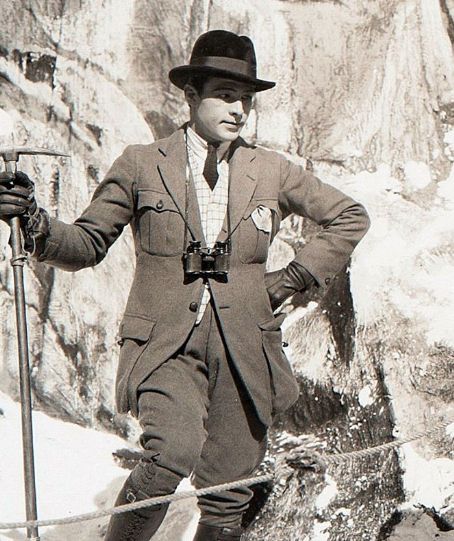
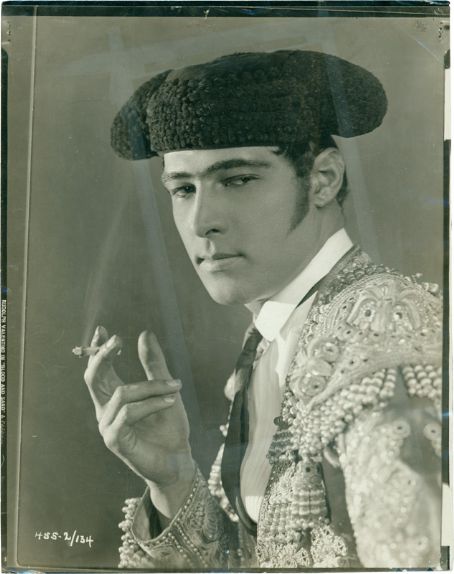
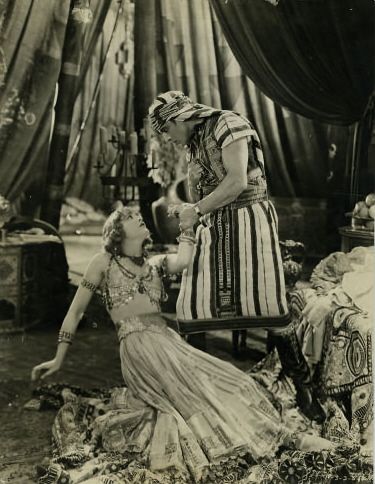






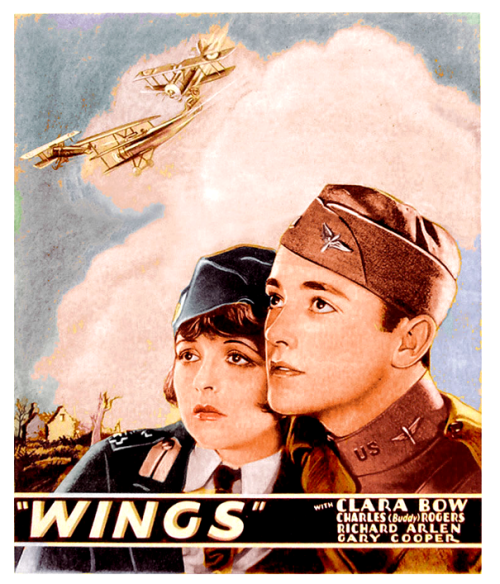












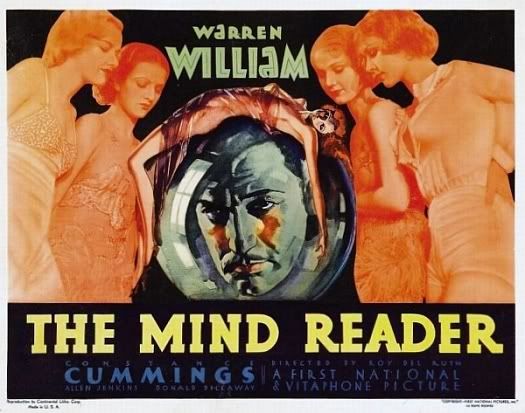


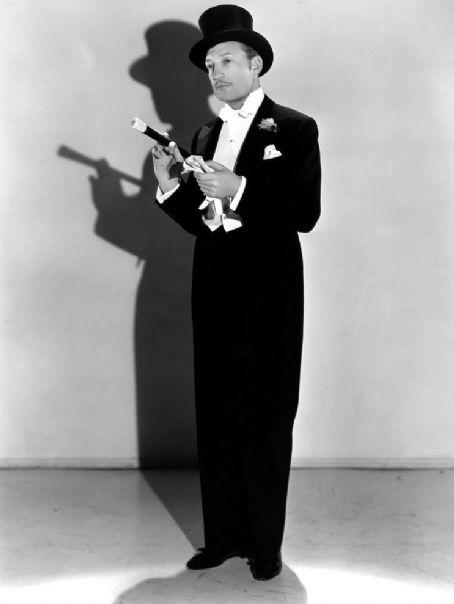

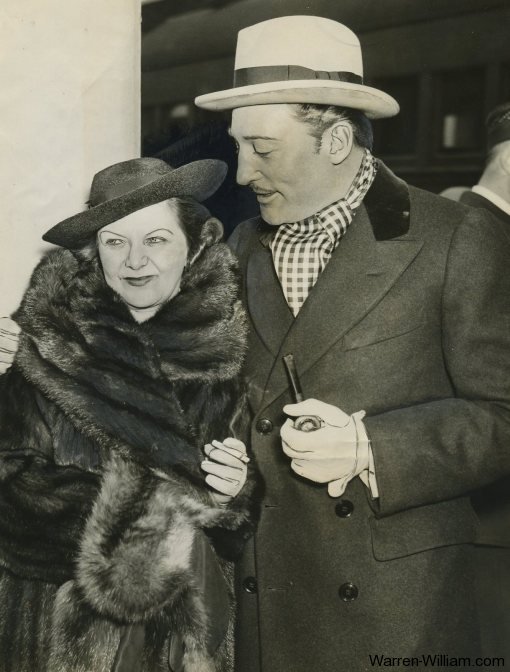

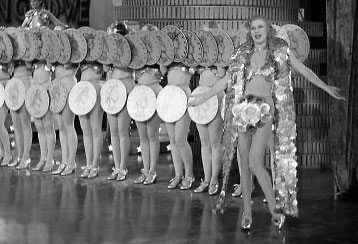 Although, these
are blatant stabs at the wellbeing of ordinary people, the light-hearted song
“Pettin’ in the Park” sung by Ruby Keeler and Dick Powell could also be
interpreted as, in some ways, politically motivated more by the use of its
chorography than its lyrics. It is well known that Busby hated the censors and
the Hays Code that was meant to reduce indecent and violent behaviour from
being shown. In this number, he deliberately goes against the organisation and
depicts images of nude women covered only by a transparent shade and uses
several unconcealed sexual
Although, these
are blatant stabs at the wellbeing of ordinary people, the light-hearted song
“Pettin’ in the Park” sung by Ruby Keeler and Dick Powell could also be
interpreted as, in some ways, politically motivated more by the use of its
chorography than its lyrics. It is well known that Busby hated the censors and
the Hays Code that was meant to reduce indecent and violent behaviour from
being shown. In this number, he deliberately goes against the organisation and
depicts images of nude women covered only by a transparent shade and uses
several unconcealed sexual 